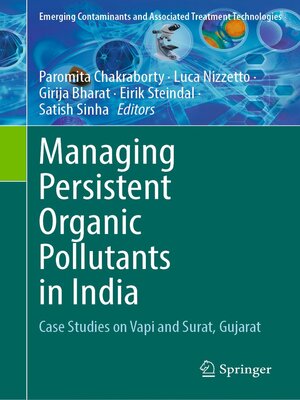Managing Persistent Organic Pollutants in India
ebook ∣ Case Studies on Vapi and Surat, Gujarat · Emerging Contaminants and Associated Treatment Technologies
By Paromita Chakraborty

Sign up to save your library
With an OverDrive account, you can save your favorite libraries for at-a-glance information about availability. Find out more about OverDrive accounts.
Find this title in Libby, the library reading app by OverDrive.



Search for a digital library with this title
Title found at these libraries:
| Loading... |
Persistent Organic Pollutants (POPs) are a class of chemicals that are persistent, bio accumulative and toxic (PBT), which are restricted for use under the Stockholm Convention. They adversely impact the environment, human and animal health. Most of the POPs are semi-volatile organic compounds (SVOCs) and known to have a long-range transport potential and are often deposited in colder climate and found in places away from the regions they are produced. POPs are usually hydrophobic (i.e., "water-hating") and lipophilic (i.e., "fat-loving") chemicals, due to which they bind to solids, particularly organic matter, and fatty tissues in both marine and terrestrial environments. As a result, POPs may move up the food chain.
This book focuses on determining the sources, fate, analytical techniques of detecting POPs as well as their health impacts. It further dwells on the regulatory aspects, management of POPs, best environmental practices (BEPs), Indian and international case studies, gaps in understanding the regulatory aspects. A few key recommendations for the way forward form the concluding chapters of this book.





